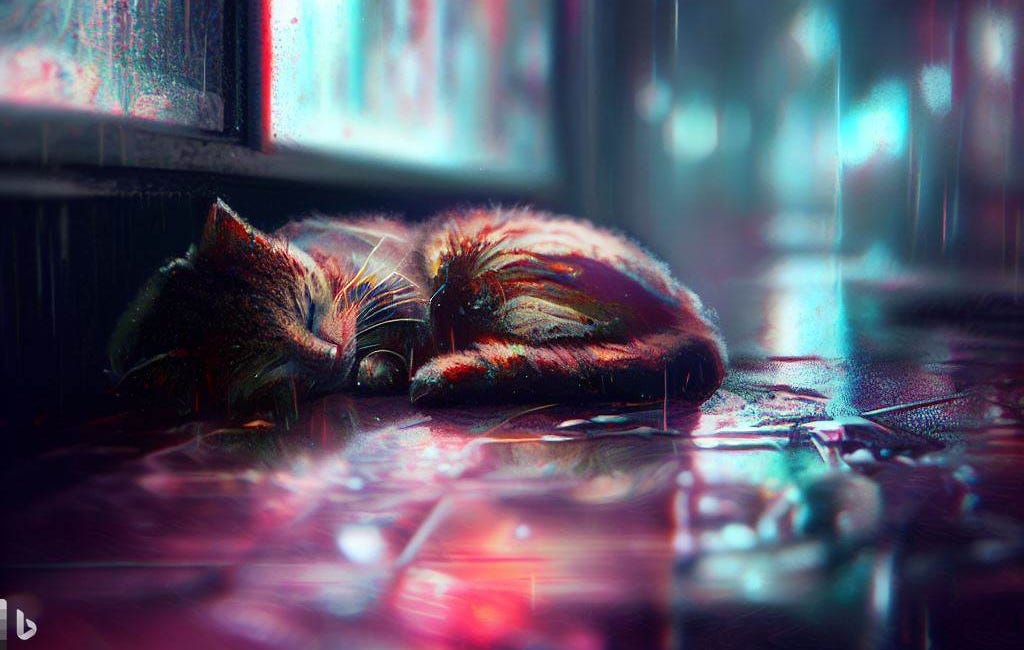“You broke that trust long ago.”
It’s been a difficult week. Work is sapping my soul, driving creativity to a place within me that I have to pluck at with coffee-tweezers each morning in the vain hope that I might locate something new, inspiring, different.
A few days ago, feeling burnt out, I wrote a lengthy extension of the above. Reading it again just now, hours before I hit publish, I figured it’s probably not what you want to read. So I deleted it. It had been a mini-release for myself, I suppose. The words were all about not feeling the drive at work and beating myself up over it, likely precipitated from withdrawing a research grant application at the 11th hour.
Stupid thoughts.
I’ve kept what I wrote at the end of it, though, because I think that part still holds:
… Work and academia aren’t my all (thankfully), much as I love aspects of it. That’s why I’m doing this. This is my drive. Part of it, anyway. Trying to create, explore and journey through stories.
/
So this is how I wanted to start:
After last week’s post about Nib, my mind has been fixated on Jisa. She hasn’t left my mind, if I’m honest. She’s been urging me to tell her side of the story, or at least some part of it. Perhaps she’s worried of what you think of her and that she might simply be using Warv. I don’t think she wants to apologise—that’s not very her—but more just to allow an experience of her existence and story to come through to the page.
If you’re new and that is all meaningless, fear not. I want these to be dip-in and dip-out experiences. Eventually, there will be a fragmented arc to work through, but for now these stories are just windows into another world.
If you didn’t read Nib (linked below), you can read that before this, or this before that, or just one and not the other. Or none! You could just stop reading here and I’ll never know. I don’t mind.
Nib
This is Nib. This text right here is not part of the story. Hello editable caption text. Hello 👋
The following is from Jisa’s point of view, a little before the events in Nib. It’s a different perspective, with just a small temporal shift, allowing an exploration of backstory and character some more. Those are my thoughts and hopes, anyway. You may have your own.
I’m going to split this into two parts. Because words. It feels a little more manageable to do it in two. I wrote this in one, though, so finding a place to slice has been tricky. It might be jarring. It might already be jarring due to the first person present tense.

So here is Part 1. You know what to do. ☕
Warv notices the moment I enter, bald head rising to meet my gaze. He lingers a fraction of a moment before his head lowers back to his work, the actions like that of some mechanical doll.
He tuts.
Forcing myself into silence, I move inside, the door behind closing and snuffing out the raging wind. In its place, the steady patter of water dripping from my cloak. The room is warm, musty as always, the smell of solder permeating the air. It draws an eager nostalgia with each intake of breath.
I’ll get nothing from Warv, not yet. So I look around at all that is new, stepping over piles of boxes, stacks of hardware, coils of cabling and sections of machinery. Almost every surface is covered. The floor and tables, the shelves that line the length of the room, they all house relic and modern that intermix in equal parts, jumbled together seemingly without order. But to know Warv is to know that is not the case; there is a system here, one I once knew.
On a bench to my right some unknown instrumentation has been prised apart, laying bare wires and circuits, an autopsy of technology. A lancing tube—still glowing at one end despite its disconnected source—is propped against a tub of sealant. I pick it up, swish it gently, fascinated by its unpowered glow.
“Put it down, Jisa.”
I look up, see his face still buried in his work. Smiling, I lower the tube back to the table, deliberately shifting its position.
I continue to move through Warv’s workshop of oddities, passing the screen door that leads through to his private space—our space, once—and pause beneath the sign still hung above, staring at the writing that is impossibly mine.
I touch polished silver bearings that line a glass dish. They jingle and chink as I move them, my face cast into a thousand warped reflections. I flick a salvaged rotor blade and it spins near frictionlessly on some special axis, turning and turning and turning. Along one wall is an exposed ionization array, innards open for my eyes, the architecture of circuitry carrying its own kind of beauty. And above it, attached by a network of fibres, a synthflesh hand dangles from a low beam, macabre yet entrancing. I prod its fingers, making it sway, and not for the first time ponder the practicalities of augments.
“Must you touch everything?”
I turn, see he has finally stopped his work and is peering at me through those frames. The pointless things he still wears, devoid of any actual lenses and still tied around the back of his neck by that old, straggly wire. The one I’d fished from some batch of trash, fashioned into loops, given to him. He looks at me in the same way I’ve seen a thousand times: a frown, pursed lips; a delay and a raised brow; a look of hope awaiting disappointment.
“What?” I say, something in me surfacing, brought up so easily. I try to push it back down, biting my tongue and offering a smile, but Warv’s lips remain still. He removes his frames to let them hang pendulous from his neck.
“Yours is a smile that could melt a million hearts, child.” He fingers the wire, twisting it. “And yet here you are, offering it to me. And for what purpose?”
“Don’t call me that. I’m no child anymore.”
Warv shifts in his chair.
When he says nothing, I ask what he’s working on, hoping I can steer the conversation from its present course. He glances to his desk, picking up a piece of paper covered in scrawl. “Oh, this?” He waves it at me. “This is something most incredible. Revolutionary, perhaps.”
Not good.
“I call it a temporal debt probability spool.”
Definitely not good.
But I play along, crossing my arms and leaning against the nearby wall. “And the function of this … spool?”
“I am glad you asked.” Warv coughs into his hand and I have the sinking feeling that his sarcasm and any game associated with it just departed along with that cough. “It will, when finished, pinpoint the exact date that you, Jisa Mirabar, will pay back all the credits you owe. All of them! Quite remarkable, wouldn’t you agree?” He glares at me, repositioning the frames on his eyes and rapping his fingers on his desk.
“Oh,” is all I manage.
“Oh?”
“I’m,” I start, push off from the wall. “I’m … It’s been difficult, OK?” I say, breaking eye contact, failing, hands dropping to my sides as my head lowers, my whole being aligning with all the memories of this prior moment. “To put it lightly,” I add under my breath, wondering at how I had hoped for anything different.
I hear Warv stand, the slow exhalation of each breath, the batter of wind against glass. Elsewhere, the distant peel of thunder, shouts from the street.
I look up. “But I promise,” I whisper. “This time. I have something. It’s complicated, but if—”
“It always is,” he cuts in, standing there, broad chest rising and falling. Then he shakes his head and turns back to his desk, to sit and resume scribbling his notes. His right hand waves an absent gesture, indicating my departure.
I look at him, unmoving.
It can’t end so quickly.
I need him.
I scuff the floor with my boot, slipping into the role I know I must play.
“Fine,” I huff, exaggerating, making a half-turn as if to leave and starting to move to the door, adding, “I’ll pay you, then. In total. All of it. All the hundred I owe.” But as I move, I watch over my shoulder. I look. I wait.
Warv’s pencil stops. His hand hesitates.
I near the door. Just two more steps and I will be touching it.
Warv lets go of his pencil. It clatters to the table. I see him look up, shaking his head. But his lips, they betray the action, trying to contain a smile.
So I smile back, hoping.
“One hundred?” he says. “One hundred?” he repeats, louder, almost unable to say the words through the laughter that escapes with them. “Let me write that down, that’s good.” And he actually feigns writing something. But then his laughter stops, his smile fading with it. “Maybe the first time it was a hundred. So long ago, I don’t recall,” he grumbles.
“I mean it, Warv,” I hurry. “I’m … I’m sorry.” I take two steps back toward him. “This time. I’ve said that before, I know. But this time.”
His eyes narrow. “You broke that trust long ago.”
I wince. Stealing was low, even for me. A long wound that has never healed.
His expression sinks. “How long has it been?” he asks.
Again I wince. Too long. Close to a year. Maybe.
“I do not know either,” he says, reading me. “And yet here you come, you walk in, move around as if this is still your home. How do you think that makes me feel?”
“You? How does it make you feel?” I snap, that something back at the surface so readily. You were the one who forced me out, I want to add. You were the one who wouldn’t accept who I’d become, is what my mouth wants to yell. You were the one who chose to always act the father!, I want to scream.
But I don’t. I don’t say any of those things.
Of all the life lessons from Warv, the ones that didn’t revolve around technology and engineering and circuitry, knowing when to shut my damn mouth is probably the one I’ve valued most. The one I held close. Most of the time, anyway.
Listen. Think. Swallow. Only then speak.
I swallow.
He raises an eyebrow. “You kept some lessons.”
Taking a long, slow breath in through my nose, I let the emotions that are sat on my tongue—so eager to be set free—dissolve back to just the chemicals that they are. They have the bitter taste of disappointment.
… to be concluded in Part 2.
Thank you for reading. You’re the best. You can help support SLAKE by hitting the heart, leaving a comment, sharing this post, or even subscribing if you aren’t already.
Oh, I meant to say: more Brae is coming soon. Just a few more bits of Renn’s text to translate for the next diary entry.





Channelling frustration into your writing, use it. As you do. Permeate those pages with emotions. I think it is a success and does not warrant worries or apologies. Raw, honest writing. Keep it coming.
The title and artwork drew me in. Writing about technology, describing it, interests me. But it's hard working with technology alone, as it can be a sparse road. Like the characters you're developing; I just started here, will have to get the rest of the story!